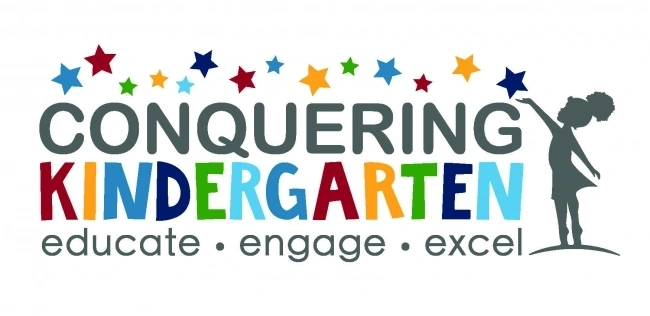Faculty Expert
-
Katie Barghaus
Executive Director, Penn Early Childhood and Family Research Center

It’s still summer vacation, but parents whose kids will begin kindergarten this fall already have questions in the back of their minds. Will my child like their teacher? Will they make friends? Will they be ready?
While this transition to kindergarten can create anxiety for parents, Katie Barghaus and Casey Henderson from the Penn Child Research Center say that there are simple things that parents can do at home over the next few weeks to help their kids be more prepared to enter the classroom in the fall.
Barghaus and Henderson helped create Conquering Kindergarten, a toolkit for parents and teachers with simple, practical strategies that help adults support children’s development of the critical skills they need to succeed in kindergarten and beyond.
Here Barghaus and Henderson suggest a few small changes you can make to your routine right now that could make a big difference when the kindergarten classroom door opens.
Why is kindergarten important?
Before we get to the tips, let’s talk about what your child will be learning in kindergarten.
Kindergarten provides the foundation for children’s educational experience. While we typically think about academic activities, like reading and math, as being the most important part of this experience, there are other skills, called social and emotional learning (SEL) skills that are just as important to support children’s educational growth and development.
The Conquering Kindergarten initiative includes free resources for families and teachers that provide simple, practical strategies to foster the growth of these skills both in the classroom and at home.
But you don’t have to wait for the school bell to ring to put these strategies into practice.
Read
We all know the importance of reading to our children, but books aren’t only a great way to help your child develop the literacy skills they need for school. Stories are also a great way to teach children the importance of SEL skills and help them build empathy and respect, which are critical SEL competencies for school and for life.
You can do this by asking children questions that encourage them to think about the thoughts and feelings of different characters in a book.
While reading, ask your child:
What do you think this character is feeling right now?
What is this character thinking about?
What do you think this character cares about?
Simple questions like this help children begin to look at the world from the perspective of others, which is a building block for empathy and respect.
Some great books that showcase important SEL skills are available in the Conquering Kindergarten Library. Pick one to read each week with your child and ask them questions about what the characters see, think, and feel to help them get ready to Conquer Kindergarten!
Play
Play is one of the best “teachers” for young children. When children are playing, they are also learning how to self-regulate so they can follow the rules of the game and how to interact appropriately with the other people playing the game, which are critical SEL skills for school success.
For example, play games like Simon Says or Freeze Dance to help your child learn the self-regulation skills they need to listen and follow all the different directions given during these kinds of games. You can also play games like “beat the buzzer,” where you give your child some instructions (for example, putting their toys and books away) and then set a timer for them to complete the task. If they follow your directions and finish in time, they win the game. This type of task helps them learn a self-regulation skill like time management in a fun and easy way.
You can also help them develop interpersonal skills during play by doing an activity in which you both have to work together and contribute. For example, draw a picture with your child. Brainstorm with them about what you are going to draw together. This might involve negotiating and compromising until you both agree on what you are going to draw. Then make a plan about who will draw the different parts of picture. Let your child know that you both have to do your part to make the whole picture complete. Once you are done, hang it up somewhere so your child can see an example of your teamwork.
These types of social interactions help your child learn foundational interpersonal skills and get them ready for a classroom setting where everyone is a contributor.
Encourage
What you say and how you say it influences your child’s development of SEL skills. Providing encouragement to your child helps them feel supported even when they may not get something exactly right. There are some easy ways you can encourage your child during your daily routines.
Hey Philly! A special note for local families: the 14 SEL skills supported by the Conquering Kindergarten initiative are also included on your child’s kindergarten report card.
Try praising your child’s efforts. Even though it can sometimes be easy to focus on the outcome (for example, your child spelled their name correctly), show your child that effort matters even more by praising them when they try to do something. Let your child know that you see them working hard even if they don’t get things right. You can do that by changing the way you provide encouragement. For example, instead of saying “You’re such a good reader,” try saying, “I’m proud of you for trying your best to read that book.”
You can also encourage children by giving them praise about specific behaviors rather than general praise. Instead of saying “Good job,” you can say, “I like the way you shared that ball with your brother.” Using specific words gives children more direct feedback about the kinds of behaviors you are trying to encourage.
Another simple way you can encourage your child is by being enthusiastic, especially when it comes to educational experiences. Enthusiasm is contagious, so share yours with your child. Talk to them about something you really enjoyed learning, either when you were in school or something you learned as an adult. Tell them what learning something new felt like for you and let them know that learning can be a little scary, but that it’s also exciting! Encouraging them to have positive feelings about school before they even show up will help them be prepared to make the most of their time in the classroom.

Conquering Kindergarten was created in partnership with the School District of Philadelphia, the Penn Child Research Center, and Philadelphia teachers and families with support from the William Penn Foundation.
Subscribe to the Educator's Playbook
Get the latest release of the Educator's Playbook delivered straight to your inbox.
Media Inquiries
Penn GSE Communications is here to help reporters connect with the education experts they need.









